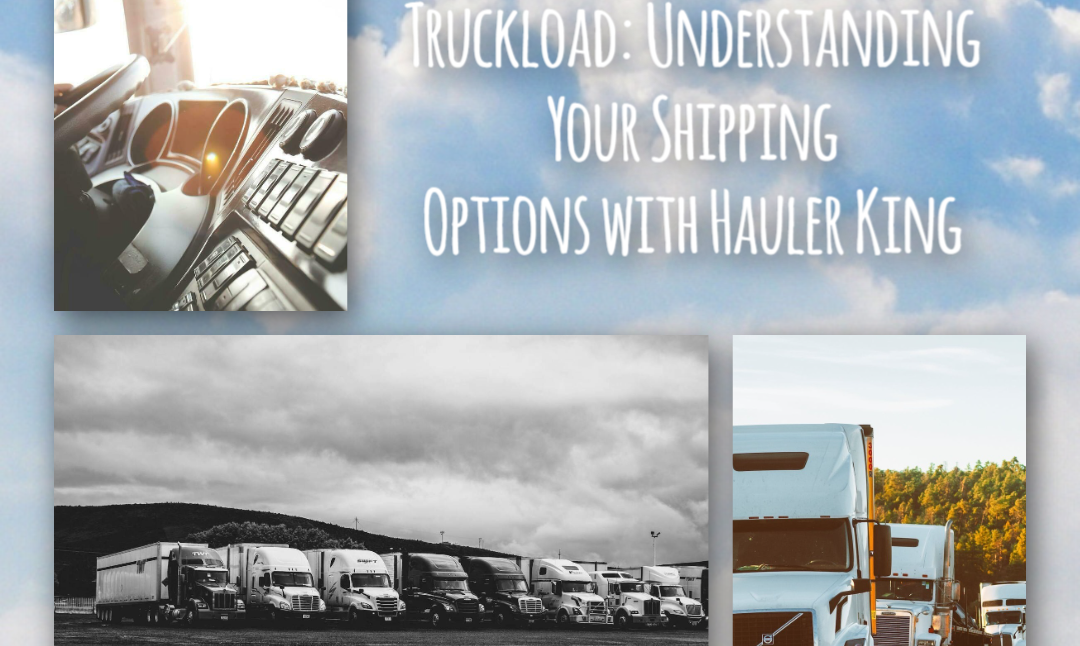When it comes to shipping goods, understanding the nuances between Full Truckload (FTL) and Less Than Truckload (LTL) can significantly impact your business’s efficiency, cost, and overall satisfaction. At Hauler King Transport, we specialize in both FTL and LTL services, and our expertise can help you make the best choice for your shipping needs. Let’s dive into the key differences and considerations for each option.
Full Truckload (FTL) Shipping: When More Means Efficiency
FTL shipping is ideal when you have enough goods to fill an entire truck or when your shipment is large or heavy enough to warrant its own dedicated transport. Here are some scenarios where FTL is the preferred option:
1. Large Volume Shipments
If your shipment occupies more than half or the entire space of a standard truck, FTL is your go-to option. This is often the case for large-scale manufacturers or distributors.
2. High-Value or Sensitive Cargo
FTL is also preferable for high-value goods or shipments that require special handling, as the cargo will not be transferred or handled en route, reducing the risk of damage.
3. Faster Delivery Times
Since FTL shipments typically go directly from the pickup point to the destination without stops, they are ideal for time-sensitive deliveries.
4. Cost-Effectiveness for Larger Loads
While FTL might have a higher upfront cost compared to LTL, it can be more cost-effective for larger shipments due to economies of scale.
Less Than Truckload (LTL) Shipping: Maximizing Flexibility and Cost-Efficiency
LTL shipping is a great solution for smaller shipments that don’t require the space of an entire truck. This option allows multiple customers to share truck space, leading to several benefits:
1. Cost-Effective for Smaller Shipments
LTL is typically more affordable for smaller shipments since you only pay for the portion of the truck your goods occupy.
2. Flexibility
LTL offers more flexibility for businesses with smaller, more frequent shipments. It’s an ideal solution for SMEs (Small and Medium Enterprises) or businesses with variable shipping volumes.
3. Eco-Friendly
By sharing space with other shipments, LTL reduces the carbon footprint, making it a more environmentally sustainable option.
4. Additional Services
LTL carriers often provide additional services like liftgate service, inside delivery, and residential pickups and deliveries, which might be necessary for certain businesses.
Choosing the Right Option for Your Business
When deciding between FTL and LTL, consider the following factors:
- Volume and Size of Shipment: If your shipment is large enough to fill or nearly fill a truck, FTL is likely the better option. For smaller shipments, LTL can save you money.
- Nature of Goods: Fragile, high-value, or perishable goods might be better suited for FTL.
- Budget Constraints: If cost is a major concern, LTL can offer significant savings for smaller shipments.
- Time Sensitivity: If you need your shipment delivered quickly and directly, FTL offers a faster, more direct service.
Hauler King Transport: Your Partner in Shipping
At Hauler King Transport, we understand that every shipment is unique. Our team of experts is dedicated to helping you navigate these options, ensuring that your goods are transported in the most efficient, safe, and cost-effective manner. Whether you choose FTL or LTL, you can trust Hauler King Transport for reliable, timely, and customer-focused service.
For more information or to discuss your shipping needs, contact us at Hauler King Transport. We’re here to help you make the right choice for your business.

